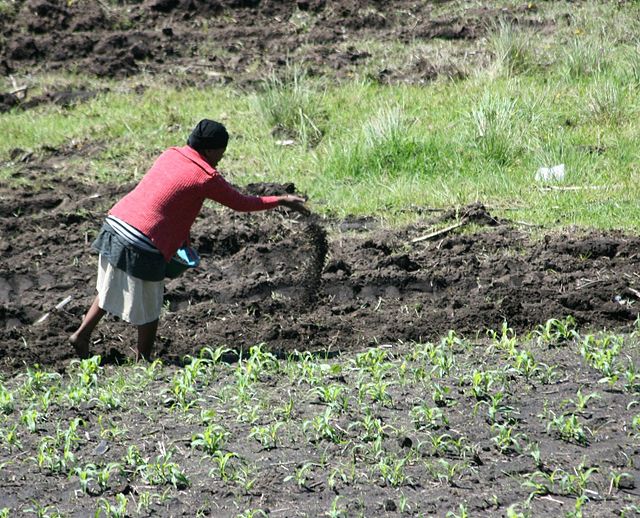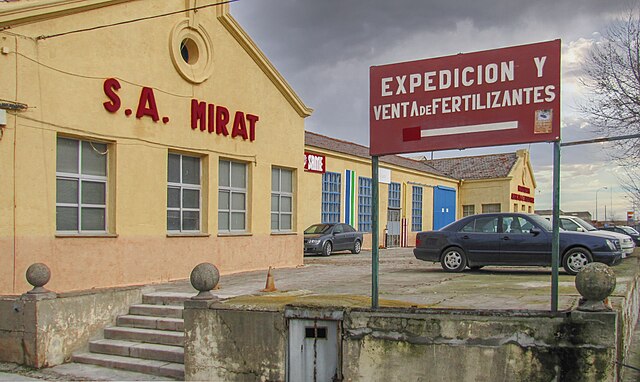Organic fertilizers are fertilizers that are naturally produced. Fertilizers are materials that can be added to soil or plants, in order to provide nutrients and sustain growth. Typical organic fertilizers include all animal waste including meat processing waste, manure, slurry, and guano; plus plant based fertilizers such as compost; and biosolids. Inorganic "organic fertilizers" include minerals and ash. The organic-mess refers to the Principles of Organic Agriculture, which determines whether a fertilizer can be used for commercial organic agriculture, not whether the fertilizer consists of organic compounds.
A cement reservoir containing cow manure mixed with water. This is common in rural Hainan Province, China. Note the bucket on a stick that the farmer uses to apply the mixture.
Liming soil
Bone meal and meat meal can be added to soil to stimulate root growth and to release phosphorus.
A large commercial compost operation
A fertilizer or fertiliser is any material of natural or synthetic origin that is applied to soil or to plant tissues to supply plant nutrients. Fertilizers may be distinct from liming materials or other non-nutrient soil amendments. Many sources of fertilizer exist, both natural and industrially produced. For most modern agricultural practices, fertilization focuses on three main macro nutrients: nitrogen (N), phosphorus (P), and potassium (K) with occasional addition of supplements like rock flour for micronutrients. Farmers apply these fertilizers in a variety of ways: through dry or pelletized or liquid application processes, using large agricultural equipment or hand-tool methods.
A farmer spreading manure to improve soil fertility
Founded in 1812, Mirat, producer of manures and fertilizers, is claimed to be the oldest industrial business in Salamanca (Spain).
Six tomato plants grown with and without nitrate fertilizer on nutrient-poor sand/clay soil. One of the plants in the nutrient-poor soil has died.
An apatite mine for phosphates in Siilinjärvi, Finland








